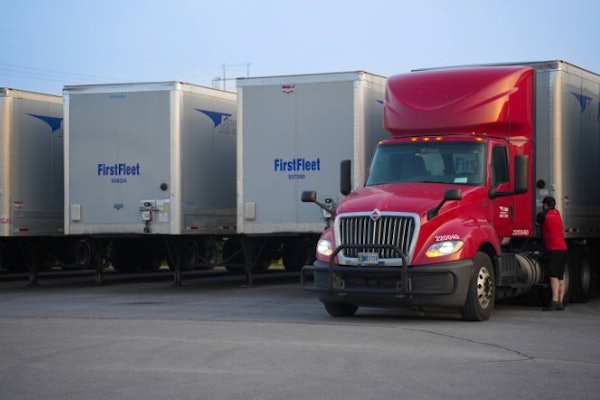Once regarded with suspicion by Class 8 engine makers, biodiesel has gained the mainstream acceptance of two of the industry’s most respected brands: Caterpillar, which for some time has endorsed 30 percent blends, and Cummins, which recently increased its endorsement from 5 percent to 20 percent.
All engine manufacturers caution truckers to use only biodiesel that meets American Society of Testing Materials standards, generally D6751, and they all remind users that engine warranties cover only defects of engines or workmanship, not problems caused by bad fuel. But petroleum-based fuel likewise must be ASTM-certified and is likewise not covered by engine warranties, so in those respects biodiesel users are no worse off.
Cummins recently announced the approval of B20 in its 2002 and later ISX, ISM, ISL, ISC and ISB engines, including 2007 products, because D6751 “now includes an important stability specification for B100 biodiesel,” the company announced. Also, the availability of quality biodiesel is growing rapidly, and Cummins has done enough testing and evaluation to ensure confidence in B20, the company says.
Caterpillar approves up to 30 percent biodiesel for ’06 and earlier Class 8 engines and is testing 20 percent biodiesel in its ’07 engines, says Cat spokeswoman Kate Kenny. “Caterpillar is identifying opportunities to increase the use of biodiesel fuel in our products because it has the capacity to generate significantly fewer greenhouse gas emissions than other fossil fuels and reduces our dependence on crude oil,” she says.
Made of oil derived from soybeans or other agricultural products, biodiesel contains no petroleum but can be blended with petroleum diesel with little or no modification. Biodiesel burns as much as 75 percent cleaner than fossil fuels. It is inherently low in sulfur, while retaining the lubricity needed for Class 8 injectors.
For now, Detroit Diesel, International, Mack and Volvo are sticking with B5 endorsements, but they otherwise are giving drivers a lot of leeway to try the new fuel.
Provided it meets D6751 specs, Detroit Diesel approves B5 in all its engines for all model years, says company spokesman Brad Williamson.
A B5 blend meeting the ASTM D975 standard can be used in all International trucks, says Joe Koenig, International’s marketing communications manager. Moreover, “Using a blend above B5 does not void the warranty,” Koenig says. “The warranty is only violated if the failure is attributed to higher biodiesel blends.”
John Walsh, media relations director for Mack Trucks, says Mack engines are warrantied up to B5.
Volvo engine warranties cover up to a B5 blend on the 2007 D11, D13 and D16 and pre-2007 D12s, says Volvo spokesman Jim McNamara. “Volvo also supports industry efforts to establish a national standard for biodiesel,” McNamara says, a sentiment echoed by Mack’s Walsh.
Freightliner and Paccar did not respond to requests for comment.
The National Biodiesel Board advises truckers to buy biodiesel only from a trusted source, as there’s generally no at-the-pump certification easy to spot, says board spokeswoman Jenna Higgins.
The board offers further guidance on buying B20:
The board recommends that interested truckers and fleet managers check the list of registered marketers at www.biotrucker.com or by calling 866-246-3437 or 866-BIODIESEL.









